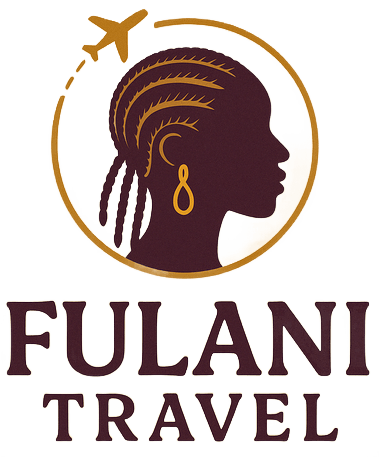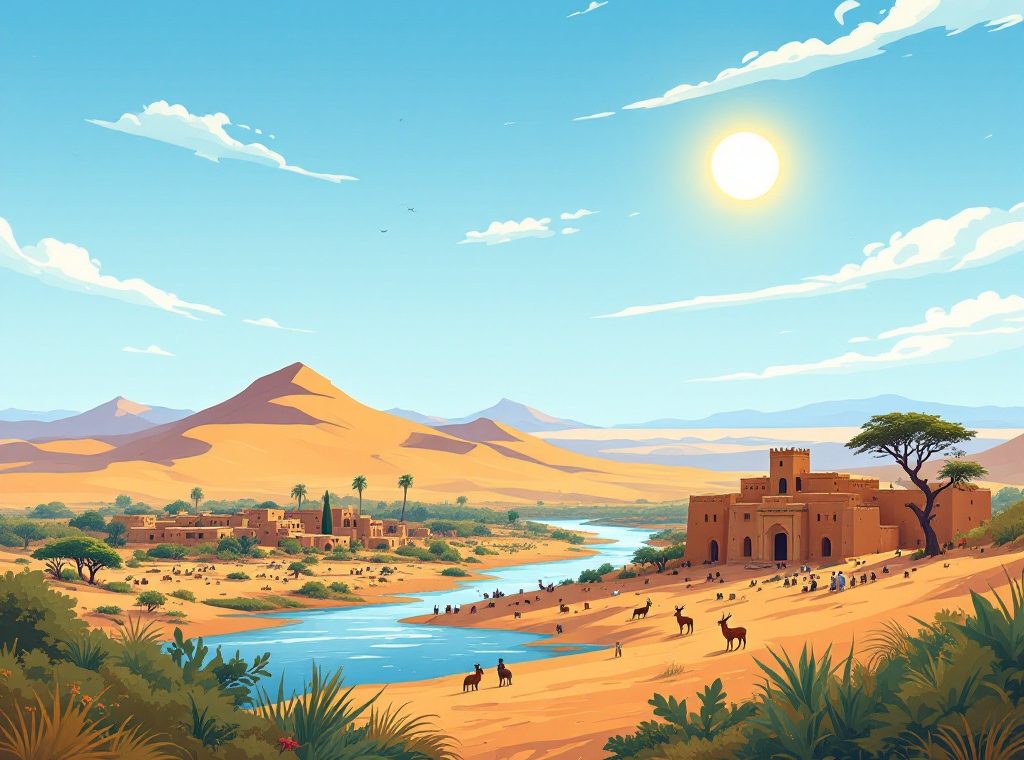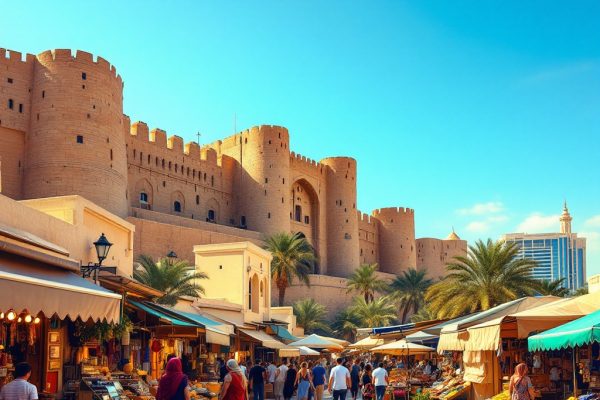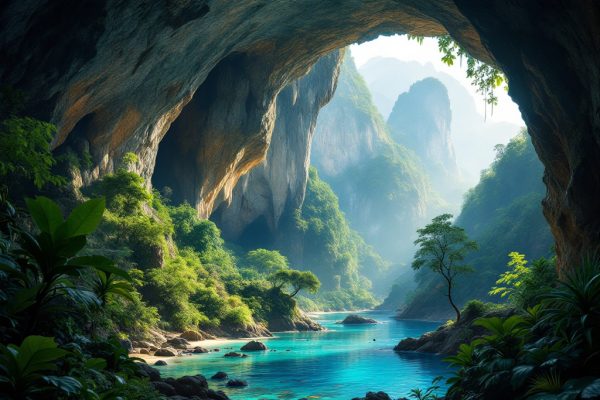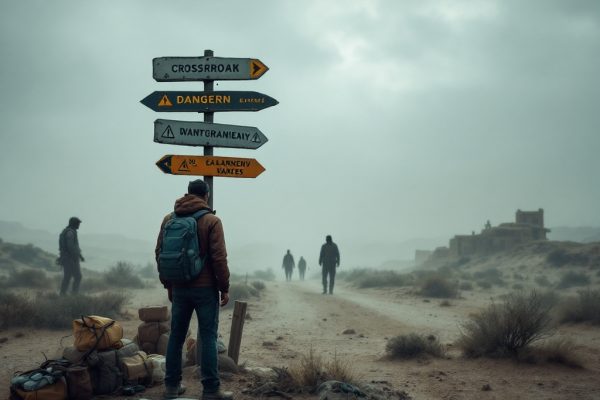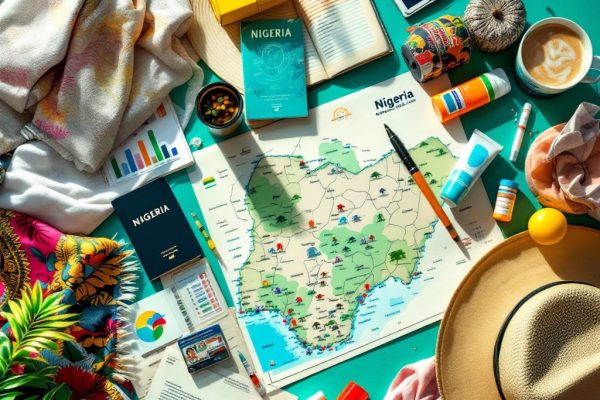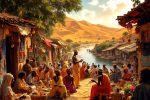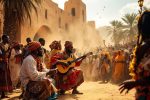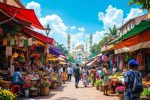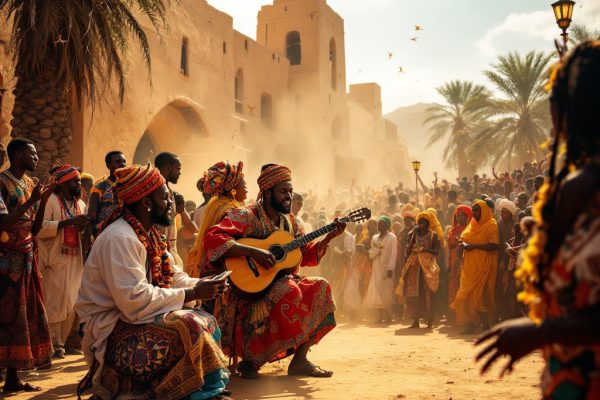Ultimate Niger Travel Guide: Top Attractions and Local Insights
Dreaming of an African adventure? Discover Niger, a West African country with breathtaking landscapes from the Sahara Desert to the life-giving Niger River. Explore ancient cities like Agadez and Zinder, rich in history and culture. Witness incredible wildlife in W National Park, a UNESCO World Heritage site. Plan your trip with vital information on visas, health, safety, and transportation. Experience the vibrant Cure Salée festival and the unique Tuareg culture. Start your Nigerien journey today!
Important information
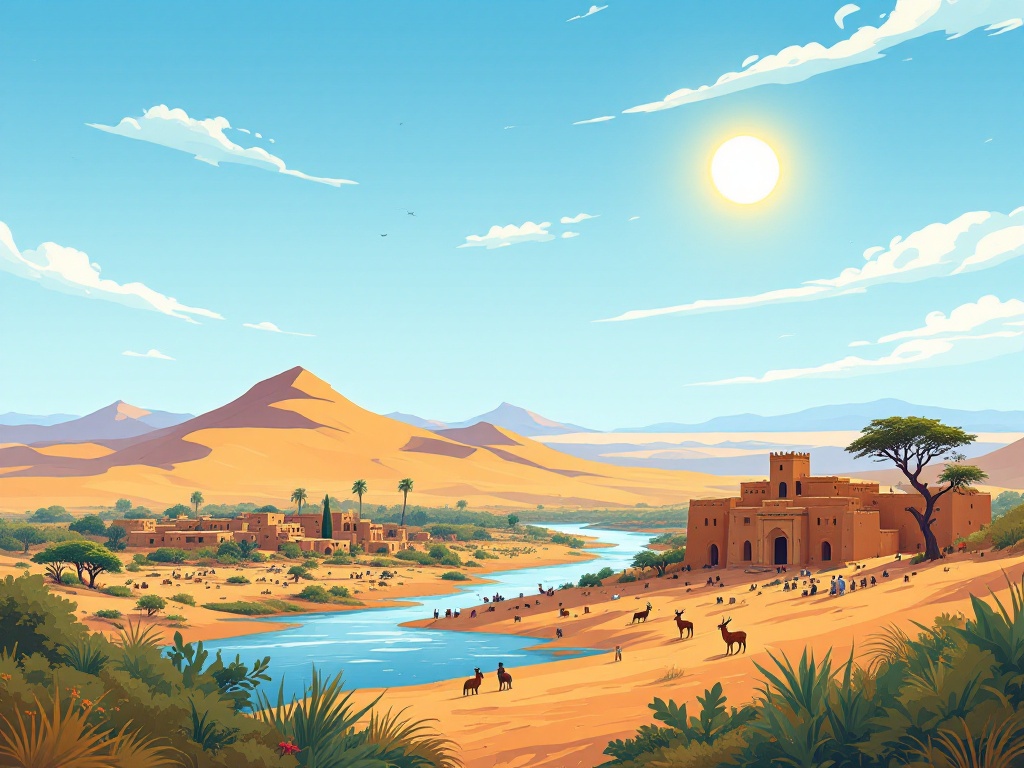
- Niger is a West African country with diverse landscapes, from the Sahara Desert to the Niger River. It’s bordered by seven nations and offers a unique cultural experience, especially with the Tuareg people.
- Travelers should check visa requirements and consult their doctor about recommended vaccinations, including yellow fever, meningitis, and malaria prevention. Travel insurance and a valid passport are essential.
- Transportation options include domestic flights, bush taxis, and private vehicles. Road conditions can be challenging. The local currency is the West African CFA franc (XOF).
- Key attractions include Agadez (a center of Islamic heritage and Tuareg culture), W National Park (a UNESCO World Heritage site), and the Aïr Mountains and Ténéré Desert.
- Niger has two main seasons: a wet season (June to September) and a dry season (October to May).
Discovering Niger: An Overview
Niger, a landlocked West African country, invites adventurers to discover its diverse landscapes and vibrant culture. From bustling city centers to the peaceful Sahara Desert, which dominates much of the nation, Niger offers a wealth of experiences. The southwest, however, features the life-giving Niger River, a vital resource for agriculture and a crucial water source. Bordered by seven nations—Algeria, Benin, Burkina Faso, Chad, Libya, Mali, and Nigeria—this land of contrasts promises a unique journey.
Understanding Niger’s Geography and Climate
The Sahara Desert dominates Niger, but the dramatic Aïr Mountains interrupt the sandy expanse, creating a stark visual contrast. The Niger River, the nation’s namesake, flows through the southwest, supporting agriculture and fishing, and providing a crucial resource for the population.
Seasons in Niger: Rainy and Dry
Niger has two main seasons: a wet season and a dry season. The wet season, essential for rainfall, occurs from June to September.
The dry season, characterized by arid conditions, prevails from October to May.
Practical Travel Information
Traveling to Niger requires careful preparation, especially regarding visa requirements and health precautions. Visa regulations differ depending on your nationality. Some nationalities are eligible for a visa on arrival, while others need to apply in advance. Contact the nearest Nigerien embassy or consulate for specific visa information pertaining to your citizenship. Before your trip, consult your doctor about recommended vaccinations, including yellow fever and meningitis, as well as routine immunizations like measles, mumps, and rubella. Malaria is a risk in Niger, so it’s essential to take prescribed antimalarial medication.
Getting Around Niger
Domestic flights connect major cities such as Niamey, Agadez, and Zinder. For shorter journeys, bush taxis and private vehicles are common modes of transport. Be aware that road conditions can be challenging, particularly in areas outside of major cities.
Safety and Communication
Upon arrival, register with your embassy to enhance your safety during your stay. It’s advisable to avoid traveling alone at night. The local currency is the West African CFA franc (XOF). Mobile phone service is generally reliable in urban areas. Using a local SIM card can help reduce communication costs.
Visa Requirements and Health Precautions
Planning a trip to Niger? Visa requirements depend on your nationality, with many requiring one before arrival. Confirm the specifics for your citizenship with the nearest Nigerien embassy or consulate. Several vaccinations are recommended, such as yellow fever, meningitis, and polio. Consult your doctor or a travel health clinic for personalized advice. Malaria prevention is also advisable. Ensure you have two crucial items: a valid passport and travel insurance.
Check visa requirements. These vary by nationality, and many require a visa before arrival. Confirm the specifics for your citizenship with the nearest Nigerien embassy or consulate.
Consult your doctor or a travel health clinic about recommended vaccinations, including yellow fever, meningitis, and polio, as well as malaria prevention.
Ensure you have a valid passport and travel insurance.
Transportation and Accessibility
Traveling around Niger offers a few transportation options: buses, bush taxis, private cars, and domestic flights. Flights connect major cities such as Niamey, Agadez, and Zinder. Road travel, particularly in rural areas, can be difficult and slow due to poor conditions. Consider traveling along the Niger River for a scenic experience. Accessibility for travelers with disabilities can be limited, especially outside of cities. Pre-planning and contacting local tour operators is strongly advised for travelers with disabilities.
Safety and Security Tips for Travelers
Before your trip, prioritize safety and health by checking local conditions and travel advisories. Consulting your doctor about necessary vaccinations, such as Hepatitis A, typhoid, and yellow fever, is highly recommended.
Pack a well-stocked first-aid kit and familiarize yourself with local healthcare options. Because malaria is a risk, pack mosquito repellent and sleep under mosquito nets.
When traveling, especially at night, do so with companions. In busy areas, keep your valuables secure and stay alert to your surroundings.
Safeguard your health by opting for bottled water. Upon arrival at your destination, register with your embassy for added security.
Local Advice: Currency and Mobile Phones
In Niger, the currency is the West African CFA franc (XOF). Mobile phones are widespread, and providers such as Airtel, Moov, and Orange ensure reliable coverage throughout the country. Picking up a local SIM card is recommended for convenient and budget-friendly communication.
Top Attractions in Niger
Agadez, a vibrant hub of Islamic heritage and Tuareg culture, is a truly captivating destination. Zinder, steeped in history, is considered Niger’s cultural heart, offering visitors a glimpse into the nation’s rich traditions. Nature enthusiasts will be drawn to the incredible biodiversity of W National Park, a designated UNESCO World Heritage site. For the adventurous, the Aïr Mountains and Ténéré Desert promise thrilling explorations across breathtaking landscapes.
Agadez: A Hub of Islamic Heritage and Tuareg Culture
Agadez, a key city in Niger, is known for its Islamic heritage and the vibrant Tuareg culture. The Grand Mosque stands as a historic landmark, a testament to the city’s rich Islamic history. Agadez also serves as a crucial center for the Tuareg people, showcasing their unique traditions and nomadic lifestyle.
Exploring the Historic Zinder: Cultural Capital
Zinder, Niger’s second-largest city, thrives as the nation’s cultural center. Famous for its rich Hausa heritage, the city’s vibrant markets offer a unique look into traditional bartering. Zinder’s history is palpable, evident in landmarks like the Sultan’s Palace and the ancient city walls.
W National Park: A UNESCO World Heritage Experience
W National Park, a UNESCO World Heritage site, is a crucial ecosystem vital to West Africa. This park offers diverse safari adventures where visitors can experience its rich biodiversity and renowned wildlife, including significant animal populations.
Adventures in the Aïr Mountains and Ténéré Desert
Explore Niger’s Aïr Mountains, a UNESCO World Heritage site, and experience breathtaking Saharan landscapes ideal for hiking and trekking. Discover diverse wildlife, including fennec foxes and baboons.Venture into the Ténéré Desert, a vast expanse of towering sand dunes. Uncover ancient cave paintings, trek across the sands on camelback, and perhaps encounter remnants of lost civilizations. Both the Aïr Mountains and Ténéré Desert are essential to the Tuareg culture, providing an opportunity to connect with the traditions of these nomadic people.
Historical and Architectural Marvels
Agadez boasts two remarkable historical landmarks. The first is the Grand Mosque, constructed of mudbrick, with its towering minaret dominating the skyline. This mosque stands as a proud symbol of Agadez’s heritage as a center of Islamic scholarship and commerce. The second landmark is the historic Sultanate Palace, a powerful reminder of the region’s influential rulers and rich history. Showcasing traditional architectural styles, the palace offers a glimpse into the lives of those who shaped Agadez’s destiny.
The Grand Mosque of Agadez: An Iconic Site
In Agadez, Niger, the Grand Mosque stands as an iconic landmark, showcasing the distinct Sudano-Sahelian architectural style. This vital center of Islamic worship reflects a rich cultural heritage, attracting tourists globally.
Visit the Sultanate Palace in Agadez
The historic Sultanate Palace in Agadez stands as a testament to the city’s rich heritage. Its distinctive architecture makes it a prominent cultural attraction in Niger, captivating visitors from around the world.
Cultural Experiences and Traditions
The Tuareg, nicknamed the “Blue People of the Sahara” because of their indigo-dyed clothing, lead a fascinating nomadic life in the deserts of Niger. Their rich traditions include camel caravans, unique musical expressions, and the crafting of intricate silver jewelry. Researchers like Susan Rasmussen have explored their remarkable adaptations to desert life and their complex social structures.
The Cure Salée
The Cure Salée, or “Salt Cure,” is a vibrant annual festival marking the end of the rainy season and the return of livestock from grazing lands. Tuareg and Wodaabe pastoralists gather for camel races, music, and a dazzling display of cultural attire. This festival’s importance for social cohesion and cultural identity was highlighted in a 2018 study by Jeremy Keenan.
The Wodaabé Gerewol
The Wodaabé Gerewol offers a unique spectacle of courtship. Men, adorned in elaborate makeup and costumes, compete for the attention of women through a week-long display of singing, dancing, and dazzling beauty. Anthropologist Mette Bovin has studied this ritual’s role in Wodaabé social dynamics and mate selection.
Tuareg Culture and Nomadic Lifestyle
The Tuareg, nomadic pastoralists of the Sahara Desert, are integral to Niger’s cultural tapestry. Known for the indigo-dyed tagelmust veils traditionally worn by men, these North African people have a rich cultural heritage. Their society traces lineage through the mother’s side, and their language, Tamahaq, belongs to the Berber family. One of their most vibrant traditions is the annual Cure Salée festival, marking the end of the rainy season. This important gathering brings Tuareg and Wodaabe clans together for ceremonies and festivities, a key celebration on their cultural calendar.
Witness the Vibrant Cure Salée Festival
The Cure Salée festival in Ingall, Niger, is a vibrant celebration of Tuareg and Wodaabe nomadic culture, marking the end of the rainy season. Music and mesmerizing dances fill the air, with participants’ colorful attire creating a dazzling spectacle that honors time-honored traditions.
Participate in the Wodaabé Gerewol Festival
The Wodaabé people of Niger celebrate Gerewol, a unique courtship ritual. This annual festival is a vibrant display of elaborate makeup, stunning costumes, and energetic dance competitions. Wodaabé men meticulously adorn themselves with intricate face paint and perform captivating dances to impress the women. Gerewol offers a dazzling glimpse into the rich culture and traditions of the Wodaabé people.
Wildlife and Nature Tours
Experience the diverse wildlife of Niger with these incredible tours:
- Explore Ayorou, a charming Niger River town, and embark on thrilling hippopotamus tours to witness these colossal creatures in their natural habitat.
- Trek through the Kouré Giraffe Reserve for close-up encounters with the gentle giants of West Africa.
- Embark on a comprehensive safari adventure in W National Park, teeming with elephants, lions, and a multitude of bird species.
- Journey into the Sahara’s Termit & Tin Toumma National Nature Reserve, a unique ecosystem home to addax and dama gazelle.
Hippopotamus Tours in Ayorou
Embark on an unforgettable hippopotamus safari adventure in Ayorou. Witness these majestic creatures in their natural habitat for a truly remarkable experience.
Giraffe Trekking at Kouré Giraffe Reserve
Trek alongside endangered West African giraffes in Niger’s Kouré Giraffe Reserve for an unforgettable close encounter.
Safari Adventures in W National Park
Embark on a guided safari adventure in W National Park, a UNESCO World Heritage site teeming with incredible wildlife. Witness elephants and lions roaming free, and marvel at the diverse bird species soaring above. Book your unforgettable experience today!
Exploring the Termit & Tin Toumma National Nature Reserve
Niger’s Termit & Tin Toumma National Nature Reserve protects a vast and unique desert ecosystem, offering a vital sanctuary for diverse wildlife. Here, the critically endangered addax and dama gazelle find refuge, as does the elusive cheetah. Numerous bird species, adapted to the harsh desert conditions, also thrive. Visitors can explore this remarkable landscape through guided tours and safaris, providing exciting opportunities to witness the reserve’s incredible fauna.
Key Features of Termit & Tin Toumma
- Vast desert ecosystem: Experience the unique beauty and biodiversity of a vast desert landscape.
- Critical wildlife haven: Observe endangered species like the addax and dama gazelle, along with cheetahs and diverse birdlife.
- Guided tours and safaris: Explore the reserve with experienced guides for optimal wildlife viewing opportunities.
Why Visit Termit & Tin Toumma?
- Witness rare wildlife: See some of the world’s most endangered animals in their natural habitat.
- Experience unique desert landscapes: Discover the stark beauty and tranquility of the Sahara Desert.
- Support conservation efforts: Your visit contributes to the protection of this vital ecosystem.
Vibrant Markets and Local Crafts
Niger’s bustling markets offer a vibrant glimpse into the country’s rich culture. The Niamey Grand Market is a major commercial hub overflowing with diverse goods and fresh produce. For unique, handcrafted souvenirs, explore the artisan markets of Maradi, which support local craftspeople and showcase Niger’s heritage. There, travelers can witness traditional crafts like pottery and textiles, experiencing Nigerien culture firsthand.
Niamey Grand Market: The Commercial Hub
At the heart of Niger’s commerce lies the vibrant Niamey Grand Market, a bustling hub where shoppers discover a diverse array of local goods. Discover traditional textiles, handcrafted items, and aromatic spices. Located in the capital city, this cultural landmark is a must-see destination.
Artisan Markets in Maradi
Maradi’s artisan market is a vibrant showcase of local handicrafts. Visitors can discover unique, handcrafted treasures that demonstrate the artisans’ remarkable skills and talent.
